Top Stories
The Graduate Division is pleased to announce the winners for two awards honoring graduate students who have distinguished themselves in the area of undergraduate research supervision: Elliott Ihm, Ryan Lach, Chelsea Edwards, Elizabeth Agey, Corinna Klein, and Valerie Meier. Read on to find out more about our awardees!
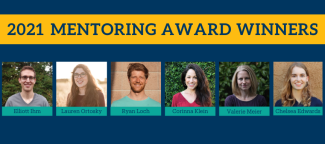
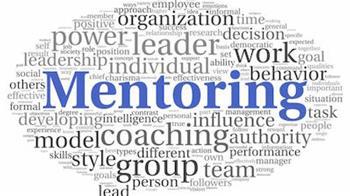 The Graduate Division is pleased to announce the winners for two awards honoring graduate students who have distinguished themselves in the area of undergraduate research supervision. The Fiona and Michael Goodchild Graduate Mentoring Award is available to students in the College of Engineering; Mathematical, Life, and Physical Sciences Division of the College of Letters and Science; and the Bren School of Environmental Science and Management. The Carol Genetti Graduate Mentoring Award is available to students in the Humanities and Fine Arts and Social Sciences Divisions of the College of Letters and Science and the Gevirtz Graduate School of Education.
The Graduate Division is pleased to announce the winners for two awards honoring graduate students who have distinguished themselves in the area of undergraduate research supervision. The Fiona and Michael Goodchild Graduate Mentoring Award is available to students in the College of Engineering; Mathematical, Life, and Physical Sciences Division of the College of Letters and Science; and the Bren School of Environmental Science and Management. The Carol Genetti Graduate Mentoring Award is available to students in the Humanities and Fine Arts and Social Sciences Divisions of the College of Letters and Science and the Gevirtz Graduate School of Education.
These students are recognized for their excellence in and contributions to undergraduate research supervision and for encouraging others to become involved in these research efforts. Each of the winning students receives a $1000 award. Read on to find out more about our awardees!

ELLIOTT IHM // Psychological & Brain Sciences
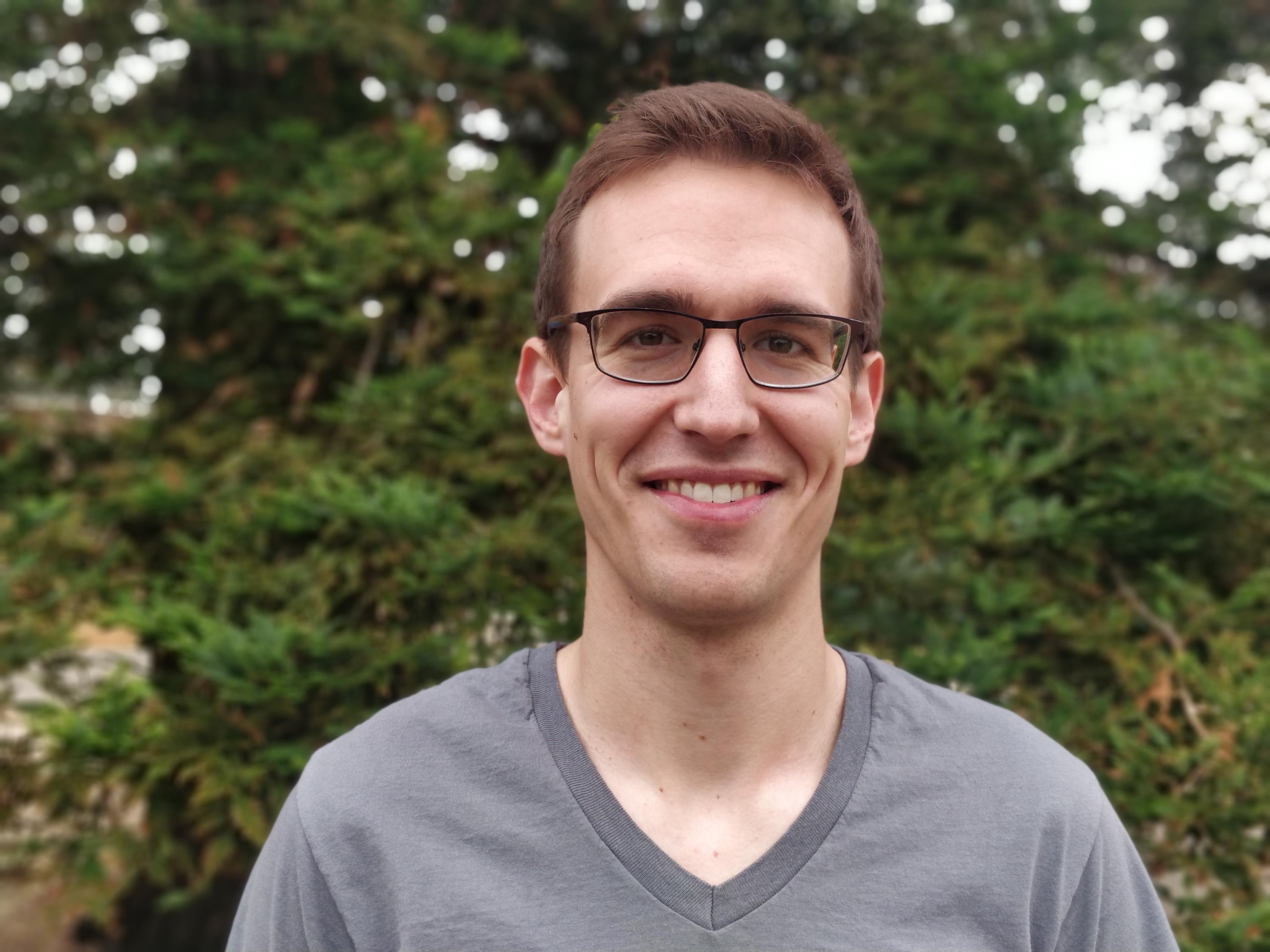 Research Interests
Research Interests
I am interested in how the mind and brain are shaped by experiences, ranging from childhood adversity, to gradual training such as meditation, to one-off experiences such as religious conversion and psychedelic experience. My dissertation focused on experiences of awe, which are often profound and life-changing, yet little is known about the cognitive mechanisms that might underlie major changes in beliefs and behavior following such experiences. I am currently working on a cross-cultural study of non-ordinary experiences, which investigates the effects of religious beliefs and practices on the experiences that people have, how they are interpreted, and their impact on people's lives.
Mentoring Experiences
I have been lucky to find many sharp and motivated undergraduate research assistants. One of my biggest challenges has been managing an interdisciplinary team, including undergraduate students from departments ranging from Psychology, to Religious Studies, to Computer Science. In the process, I have learned a lot about what it takes to have productive collaborations across disciplines. Doing my own research has its moments, but nothing has been such an unalloyed pleasure as teaching and mentoring. It is supremely fun and rewarding to help a curious student hone their inchoate ideas into scientific hypotheses, and introduce them to methods that will empower them to test their own predictions with rigor and precision.
Meaning of the Award
I am honored to cap off my time at UCSB with the Fiona and Michael Goodchild Graduate Mentoring Award! Teaching and mentorship are among a university's most important functions, but they are too often seen as ancillary to research output. My own mentors in undergrad, especially Drs. David Bridgett and Angela Grippo, consistently went out of their way to provide me with every opportunity to develop my skills as a researcher and academic. It has been my goal to pay this forward, and this award is a satisfying indication that I have done so.
RYAN LACH // Molecular, Cellular, & Developmental Biology
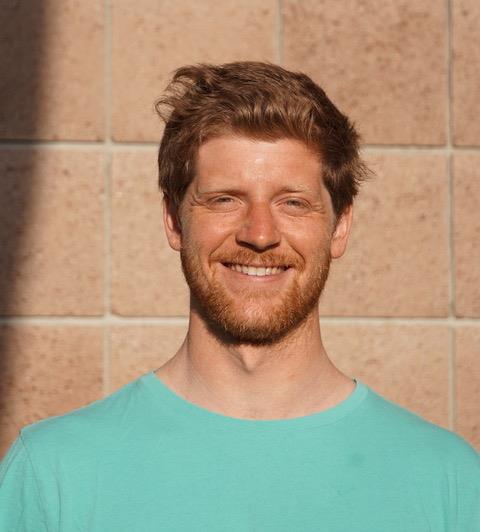 Research Interests
Research Interests
My research interests are in biophysics and stem cell biology. My current work is at the intersection between these fields: working to better understand the biophysical principles underlying protein coacervation (droplet formation) and the role of this process in controlling cell identity.
Mentoring Experiences
Mentoring undergraduates is one of the most rewarding aspects of grad school for me. Getting to see students with very little lab experience grow into passionate and effective scientists (both technically and intellectually) is heartwarming and exciting beyond words. I think that the largest challenges for any scientist lie in effectively communicating their work to others, whether they be elementary school kids or professors. The best scientists can distill the important aspects of their experiments and explain why it is important to almost anyone who wants to listen. I have found that taking the time to thoroughly motivate the work we are doing in the lab is essential in getting undergraduate researchers excited about their role in the lab. I have improved a lot since I first started, though: it has taken a lot of practice!
Meaning of the Award
To have been selected for this award was the best! I would not be in science if not for the excellent mentorship I received as an undergraduate, and this award is an indication that I am paying some of that forward. I am honored to be able to contribute to the fantastic scientific community at UCSB in helping undergrads to obtain skills and experience they can take with them wherever they want. I would also like to stress that successful mentoring relationships are mostly the product of excited mentees. The role of the mentor is nothing without intelligent, self-motivated mentees and I am tremendously lucky to have been approached by my undergrads Erfan Zeyaei Kajbaf, Hannah Lock, and Alex Wang. This award should really go to them!
CHELSEA EDWARDS // Chemical Engineering
 Research Interests
Research Interests
I study coacervation, which is a process in which charged polymers (proteins or polyelectrolytes) phase separate out of salt water into polymer-rich droplets, called "coacervates." Coacervation is an important step in formation of many mechanically-resilient natural materials, has been implicated in some neurodegenerative diseases like Alzheimer's, and might have helped form Earth's very first life-like structures! Consequently, there's been a lot of recent work to understand the conditions under which coacervation forms, like polymer concentration, length and charge sequence. But nearly all naturally-occurring coacervates exist out-of-equilibrium. With this in mind, I work on understanding the kinetics of coacervation and coacervate response to changing external conditions using a combination of experiments and simulations. For example, I'm characterizing the non-equilibrium morphologies that form during phase separation and how the mixing conditions affect what we see.
Mentoring Experiences
I feel grateful to have had a few opportunities to mentor undergraduate students. During my first summer at UCSB, I began to mentor two students full-time. I learned quickly that they have very different personalities, needs, and scientific interests, and consequently thrive under different mentorship styles. Ultimately, through dedicated thought, trial-and-error, and listening to my mentees' needs, I believe I've been able to achieve a mutually-beneficial opportunity for each student, which is reflected by the publications emerging now from both projects. On a personal level, though, my reward for my mentorship activities has reached far beyond publications: the joy of seeing the students learn, their contributions come to light, and their excitement and newfound confidence upon completing a successful project or experiment. Seeing the students mature and become more independent research scientists is one of my favorite aspects of the Ph.D. so far.
Meaning of the Award
I feel very honored to receive this award! Being a good mentor is very important to me. Finding my own mentors who believe in my potential and support my own goals has been critical to my continued motivation, happiness, and success in my undergraduate and graduate careers so far--not to mention my passion for polymers, light scattering, and chemical engineering in general. Since undergrad, I'd always wanted to be that graduate mentor who was highly-driven, passionate, compassionate, and knowledgeable, both to pay it forward and also to show younger students how fun and fascinating research can be in this field. I'm so proud that my mentees and advisor think I've been a great mentor. From my perspective, it really takes a village to make a successful undergraduate student, and so I'm extremely appreciative for even the opportunity to be able to have mentored two great students in the first place!

ELIZABETH AGEY // Anthropology
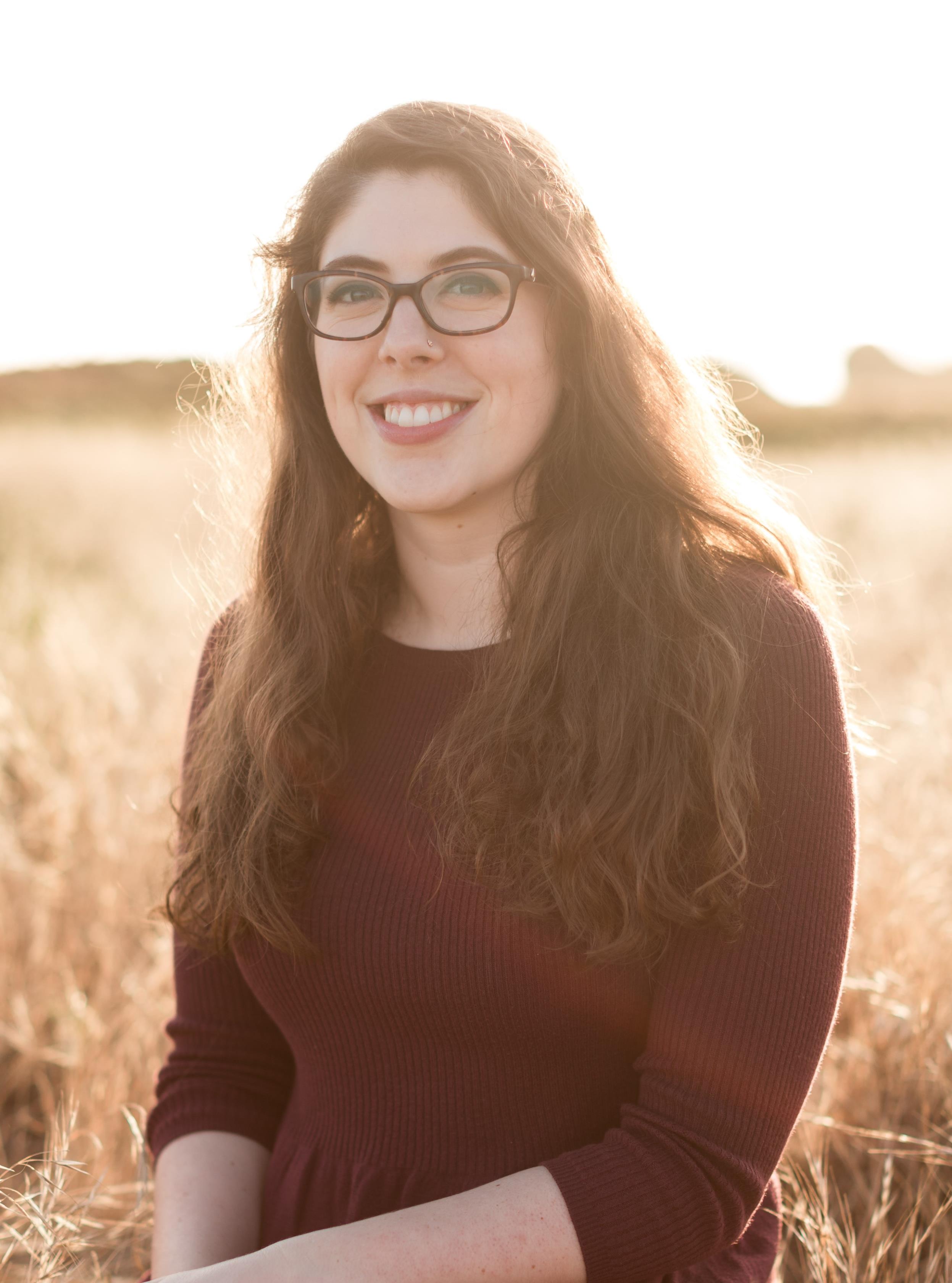 Research Interests
Research Interests
My research focuses on why people choose certain individuals as mates and how that influences reproduction, health, and wellbeing. I am especially interested in differences between partner choice in arranged marriages, where parents choose a spouse for their child, and so-called "love marriages" where individuals choose their own spouses. I investigate these dynamics from data I've collected at a field site in Nepal.
Mentoring Experiences
I have worked with undergraduates on lots of different projects from data collection to analysis; I even had a student join me for a field season in Nepal! The biggest challenge is usually getting them started on a project because many of the students I've worked with had never done formal research before. When I first start working with students, I give lots of guidance and instruction, but by the end of the project the students are contributing heavily to the research design and interpretation as coauthors. I think I learn just as much from the undergraduates as they do from me!
Meaning of the Award
Winning this award is a huge honor because mentoring undergraduates is something I've really poured my heart into at UCSB. The undergraduates I've worked with have all been exceptional and they've been a big part of my research as well. I am grateful for all the wonderful mentors I've had in my life, and this award really motivates me to keep trying to be an exceptional mentor for undergraduates at UCSB and beyond.
CORINNA KLEIN // Counseling, Clinical, & School Psychology
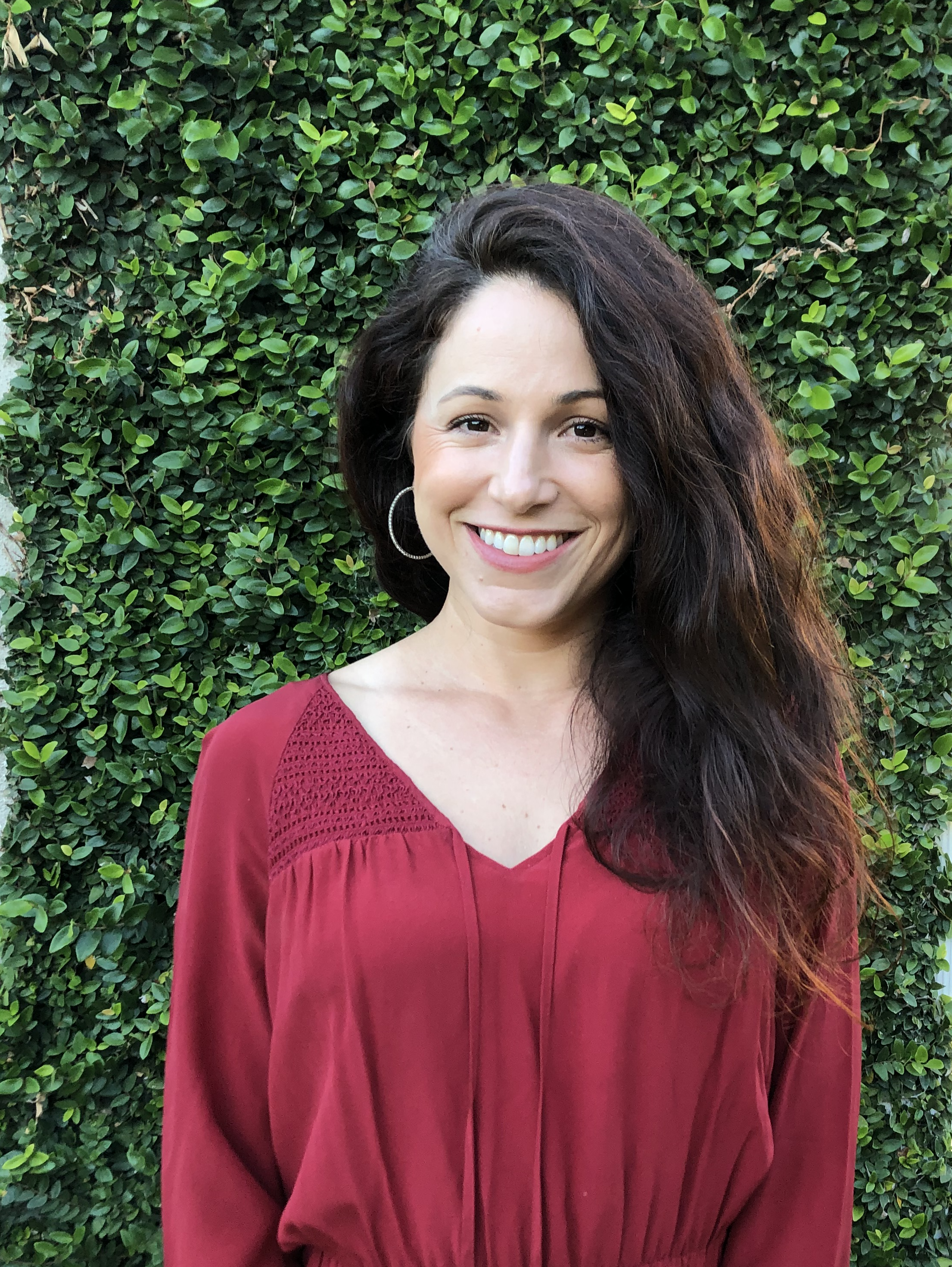 Research Interests
Research Interests
My research interests include improving the quality of children's mental health care and ensuring access to effective mental health services, particularly in community agencies. I value mixed-methods research design, and my work focuses on the implementation and dissemination of interventions that engage caregivers in their children's treatment. My hope is that by supporting both clinicians and caregivers, we enable them to better support children.
Mentoring Experiences
Working with the undergraduate research assistants in the PADRES lab has been one of the most rewarding parts of graduate school. I am in constant awe of the students who come in, impassioned about the work we do and dedicated to increasing equity in access to effective mental health services. I feel incredibly fortunate to witness their growth as scholars, and it has been a great privilege to offer them guidance and to support their evolution as students, researchers, and future professionals. I am deeply gratified to consider a world in which the students I have worked with go on to shape the course of research and to inform the direction of scientific inquiry.
Meaning of the Award
I am honored to have received this award, and thankful that my advisor and the undergraduates I have worked with felt that I merited it. I know without question that the only reason I am developing as a researcher is because of the amazing mentorship I receive from my graduate advisor, and I hope to keep supporting students in the ways she has supported me. I entered academia to conduct research that would reshape mental health services such that they are effective and accessible for all populations. These goals require a diverse and expansive array of researchers dedicated to similar aims, and I plan to have an academic career where I can continue to mentor students who are similarly dedicated to this work.
VALERIE MEIER // Education
Research Interests
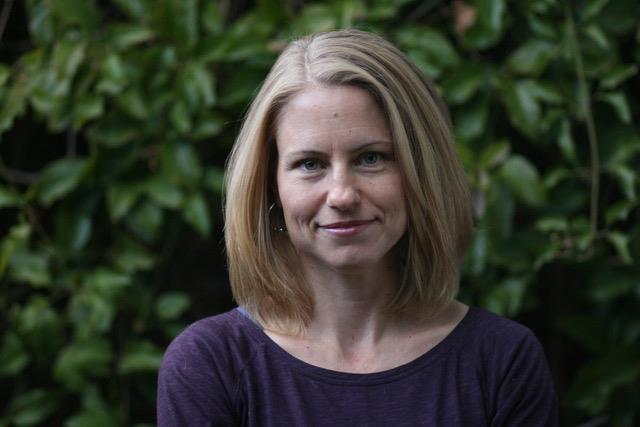
Too often, students who come to school speaking languages or dialects other than "standard" English are positioned as lacking language skills rather than celebrated for their rich and varied linguistic repertoires. I want our K-12 schools to be culturally and linguistically sustaining spaces where multilingual youth can thrive. In my research I have been examining how to prepare secondary science teachers to work with multilingual learners, while in my university-school partnership work I have helped implement curricula that center the expertise of multilingual youth.
Mentoring Experiences
I've coded interview and classroom observation data with research interns as part of NSF-funded projects examining preservice math and science teacher learning; supported undergraduate facilitators as they engaged 4th and 5th graders from Harding Elementary in reading and writing about our maritime community; and taught alongside undergraduates through SKILLS, a program that introduces high school students to concepts and research methods from sociocultural linguistics. Throughout, I have been inspired by the energy, creativity, and idealism of UCSB undergraduates, and have relished the opportunity to learn from folks with such rich lived experiences, skills, and perspectives. Collaborating and building mentoring relationships with undergraduates has been a highlight of my graduate education.
Meaning of the Award
Mentoring is critical for ensuring undergraduates, particularly those from underrepresented groups, can access the resources, opportunities, and support they need to flourish. I am so appreciative of the mentoring work my graduate student colleagues are doing and deeply honored to be recognized with this award.